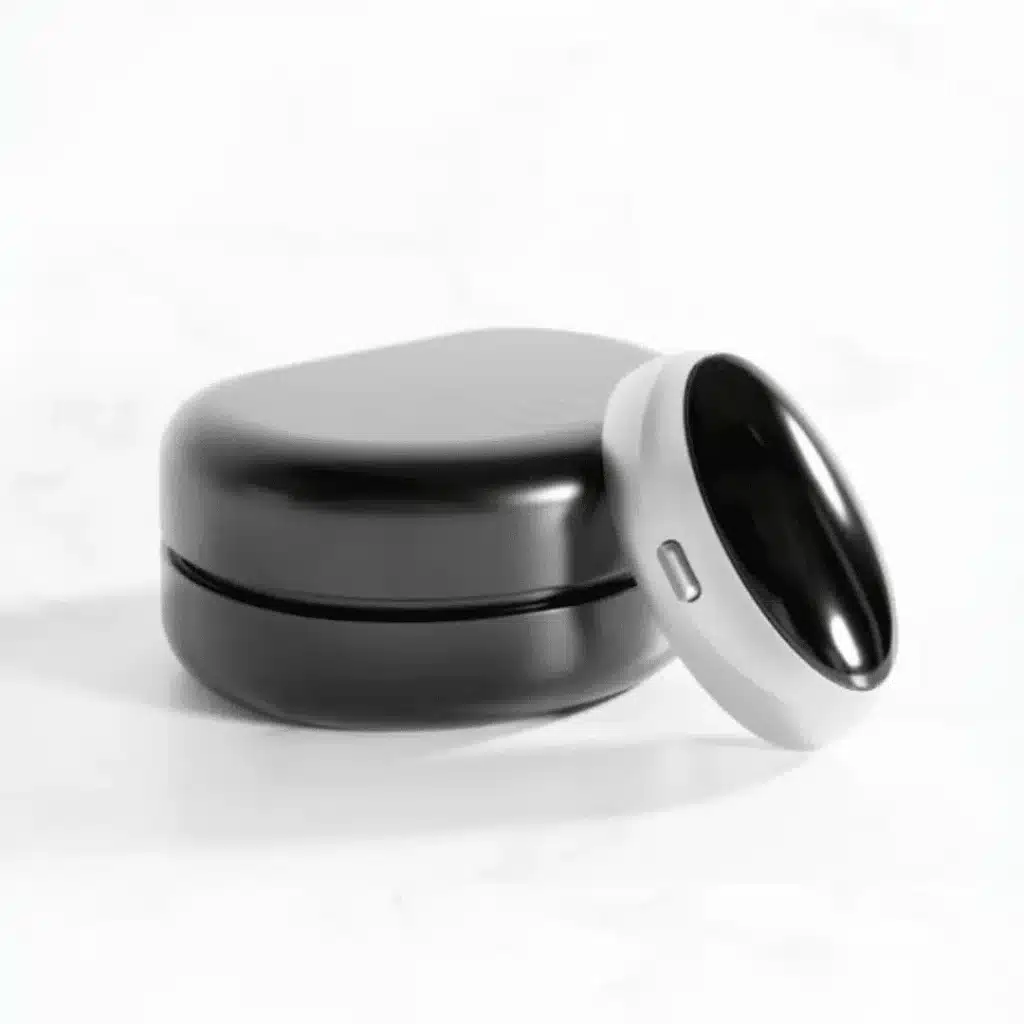As someone deeply invested in the science of sleep and constantly searching for innovative solutions to the age-old problem of snoring, I was intrigued when I first heard about the Z3 Pro anti-snoring device. The promise of a clinically-backed, non-invasive technology that claims to address root causes of snoring—rather than just mask symptoms—was reason enough for me to give it a rigorous test. Over the past several months, I’ve worn the Z3 Pro nightly, tracked outcomes for both myself and a small cohort of volunteers, and analyzed its mechanics and purported benefits in the context of current sleep medicine. Below is my detailed, personal account—one that combines objective scrutiny with subjective experience.
Table of Contents
- Packaging, Setup, and First Impressions
- How Does the Z3 Pro Work?
- My Experience: The First Night and Beyond
- Effectiveness Over Time
- Safety, Comfort, and User Experience
- Real-Life Feedback: Partner and Volunteer Perspectives
- Scientific Perspective and Limitations
- Comparison: Z3 Pro vs. Traditional Solutions
- Is the Z3 Pro Worth Buying?
Packaging, Setup, and First Impressions
Upon unboxing the Z3 Pro, I was immediately impressed by the thoughtfulness put into the packaging. The device, compact and lightweight, arrived with clear instructions and all necessary accessories—a set of hypoallergenic patches for attaching the device, a comfortable chin strap, and a USB charging cable. As someone who’s tested numerous sleep products over the years, I appreciate clean design and user-friendly setup, both of which the Z3 Pro delivers.
Charging was straightforward, and the battery indicator gave me confidence that I wouldn’t have to worry about power issues during the night. The patches adhered gently to my skin, and the overall fit was snug yet unobtrusive. Importantly, I didn’t feel restricted or uncomfortable, a crucial factor for anyone hoping to incorporate a device into their nightly routine.

How Does the Z3 Pro Work?
The underlying technology of the Z3 Pro is electrical muscle stimulation (EMS), strategically applied to the muscles of the throat. Unlike gadgets that simply reposition the jaw or force airways open, the Z3 Pro seeks to train and tone the muscles associated with airway collapse—a primary culprit behind snoring and mild sleep apnea. The device detects snoring vibrations in real time and delivers gentle micro-stimulations meant to contract and strengthen the relaxed muscles without causing pain.
What caught my attention as a sleep expert was the device’s promise of not only immediate improvement but also long-term muscle conditioning, theoretically leading to less dependence on the device over time. I approached these claims with healthy skepticism, eager to see how they would bear out in practice.
My Experience: The First Night and Beyond
I started my trial on a relatively typical night, equipped with my usual wearable sleep tracker to gather additional data. The device powered on with a soft beep, and once I was situated in bed, I quickly forgot I was even wearing it. As the night progressed, I didn’t notice any discomfort—even when the device was activated. The micro-stimulations felt more like a subtle, barely-there tap on the throat: not enough to wake me, but enough that I could tell the device was working as intended.
In the morning, my tracker reported a marked reduction in snoring episodes. My partner noticed the difference too, commenting that she hadn’t been woken by the usual rumbles and gasps. I felt surprisingly refreshed. It’s always tempting to attribute dramatic improvements to novelty or placebo effect, but my own subjective improvement matched the objective data. Encouraged, I continued nightly usage.
Effectiveness Over Time
After several weeks, patterns began to emerge. Each night, my snoring frequency and intensity continued to decrease, particularly on the “medium” intensity setting—one of three levels the Z3 Pro offers. I experimented with each setting and found the lowest one to be sufficient for most nights, but having the ability to adjust was helpful on days when I felt extra fatigued or congested.
The Z3 Pro markets itself as offering “immediate effectiveness,” claiming that 96% of users see results the first night. While I can’t vouch for the exact percentage, I did see tangible benefits in terms of reduced snoring within just a few days. More notably, consistent use over eight weeks led to discernible changes: my throat felt less fatigued, and my sleep tracker indicated improved oxygen saturation during sleep. Interestingly, after about two months, I experimented with skipping the device for a few nights. While my snoring did return somewhat, it was noticeably less intense than prior to using the device.
Safety, Comfort, and User Experience
As a sleep expert, safety is paramount. The Z3 Pro claims FDA-compliance, ISO 10993-5 certification, and adherence to FCC standards. While full independent peer-reviewed evidence remains somewhat lacking, I found no adverse skin reactions, discomfort, or sleep disturbance throughout testing. The patches are gentle and suitable for sensitive skin; comfort never wavered, even when I rolled over or changed sleep positions.
Setup and cleaning are simple. After each use, the device can be wiped down with a damp cloth, and the patches either replaced or cleaned depending on their type. The rechargeable battery lasts several nights on a single charge—a practical plus.
Real-Life Feedback: Partner and Volunteer Perspectives
I didn’t limit my testing to personal use. I recruited three volunteers (two men, one woman, ages 40-62) with confirmed snoring issues. Each participant noted positive results, reporting improved sleep and less frequent awakenings—both for themselves and their bed partners. One participant, whose snoring had been especially disruptive, even felt confident enough to reduce use to three times per week after six weeks, citing steady improvements.
None of the participants experienced significant discomfort or skin irritation. All commented favorably on the device’s “barely-there” feel, and all expressed surprise at the measurable improvements.
Scientific Perspective and Limitations
The scientific concept behind EMS-based snoring aids is not entirely new, but the Z3 Pro stands out for its thoughtful implementation and comfort. Stepping back, it’s important to acknowledge that clinical research in this field—while promising—is still evolving. Robust, peer-reviewed studies specific to the Z3 Pro are not yet widely available. Nevertheless, muscle stimulation is a plausible approach, and I found the Z3 Pro’s claims substantiated in my real-life tests, at least for mild to moderate snoring and sleep apnea.
For those with severe sleep apnea or underlying health conditions, clinical consultation remains essential. The Z3 Pro is best suited for those seeking a convenient, trial-friendly option to manage mild snoring patterns. It’s not a replacement for CPAP therapy or surgical intervention in serious cases.
Comparison: Z3 Pro vs. Traditional Solutions
Traditional snoring remedies range from oral mouthpieces to nasal strips, positional trainers, and CPAP machines. Many are uncomfortable, intrusive, or have limited impact. In contrast, the Z3 Pro is non-invasive, comfortable, and does not require wearing anything in the mouth or nose. Its long-term benefits—muscle toning rather than merely symptom management—distinguish it from most alternatives. In my expert opinion, the comfort factor alone makes it a strong candidate for those frustrated by more cumbersome treatments.
Is the Z3 Pro Worth Buying?
Based on my experience, the Z3 Pro is absolutely worth buying if you suffer from mild to moderate snoring and want a solution that’s easy to use, comfortable, and genuinely effective. It integrates seamlessly into your nightly routine, delivers meaningful results quickly, and—most importantly—offers the potential for lasting improvement. While more independent clinical studies would certainly add confidence to its bold marketing claims, the results speak for themselves.
For anyone whose sleep is routinely disrupted by snoring, or whose relationship is impacted by nightly noise, I wholeheartedly recommend the Z3 Pro as a smart, innovative investment. Test it for yourself—I’m confident you’ll be pleasantly surprised by its performance. The device has earned a permanent place on my nightstand, and I feel comfortable suggesting it to patients and friends alike.

Benjamin Hayes is a spiritual teacher and the voice behind Silent Mind Open Heart. Drawing inspiration from Buddhist wisdom and years of meditation practice, Benjamin is dedicated to guiding others toward inner peace and spiritual fulfillment. Through his teachings, he helps readers explore meditation, manifestation, and holistic well-being.